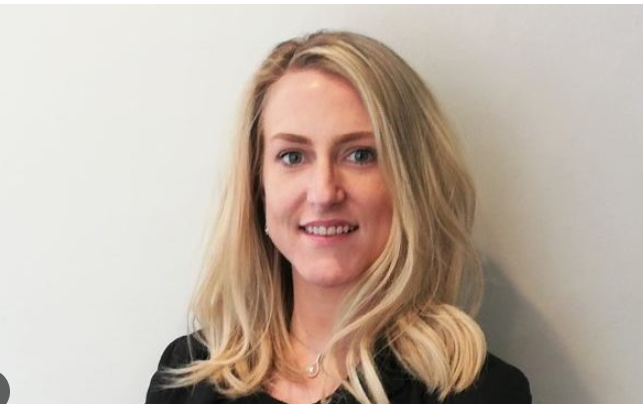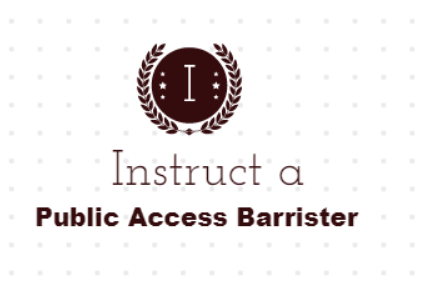With all the issues surrounding equality and diversity at the Bar in the media at the minute it really hit home and reminded me of the struggles I faced in my journey to this wonderful career and within.
It is right to say that “representation should represent”. What I mean by that is, that if we (the profession) are representing people from all walks of the life, the profession would be better equipped by having members from all walks of life – but at the minute the profession is not quite there and there is work to do in terms of equality and diversity. It is certainly seeing some positive changes in more recent times, but more needs to be done not only to attract a diverse and equal intake but also to retain the talent it appears to currently be haemorrhaging.
It is ok to say, “take on new pupils that come from a range of backgrounds; class, sex, race etc..”, but the difficulty from my point of view is changing the perception, thoughts and bias from within for that to be even considered as remedy. In addition to this, is the issue of retaining women at the Bar. The figures suggested by the Times Newspaper was that whilst women make up 50% of those qualifying as Barristers, only 15% of the top barristers (silks) and 29% of the judiciary are female. Last year the profession proudly celebrated 100 Years of Women at the Bar and there have been some amazing changes throughout those times, but the figures tell us what we all know – something needs to change.
Whilst I can’t speak for everyone’s journey, I can certainly tell my story for lessons to be learnt, and I certainly know I am not alone in some of the adversity I have faced. Without speaking out it is difficult to drive change, and that’s also where another difficulty lies, as those going through the process of looking for pupillage (and indeed in practice) often feel (and some are made to feel) they cannot speak out about the adversity or negativity they have faced, for fear of hindering their chances of getting pupillage or halting their careers by being known as moaner or trouble maker or whatever else– so it’s a put up, shut up and move on process and that needs to change. For the bar as profession to know where the issues lie, they need to what they are, so they can then work on changing them for the better.
I doubt my story is unique in respect of the struggles I have faced, and I do not for a second make any attempt to deter from the fact that the process of becoming a barrister, whatever your background, is an intensely competitive one. Nevertheless, my route to qualification was far from conventional and at the time of starting my law degree I had a small 6-month-old daughter. Being a mother did not prevent me from graduating with a first-class honours degree and then going on to complete the BPTC whilst at the same time running my own successful business. I was extremely proud at how hard I had worked given my personal circumstances, yet when it came to pupillage interviews, I was often met with questions such as “how will you cope? How will you juggle this demanding career and a child?” – “Do you plan on having any more children?”. I was extremely stunned as I thought I had managed fine completing my studies and working, why would having a child at the Bar be any different to that and why should it be? I recall on one mini pupillage that I was congratulated, not for pursuing a career at the bar, but doing it as a mother, and whilst the praise came from a good place, it really surprised me that this was seen as something out of the ordinary – that mothers could not be Barristers or at least that is how it appeared to be portrayed.
The Bar is renowned for its old-fashioned history and proffers a stereotypical identity of being stuck in its ways. Ironically that’s what drew me to the Bar in the first place. The traditions, the wearing of the wig and gown and the unwritten rules of not shaking hands and calling other Barristers by the first names, all patterns of behaviour done for so long it becomes almost binding and these are still done to this day, because that’s the way it has always been. On that background, the issues surrounding retention and application from an equality and diversity perspective are analogous to those highlighted traditions and very little has changed, because simply put, ‘it is the way it has always been done’. As the saying goes if something is not broken do not fix it. Well as I have stressed in this article, it is broken, and something needs to be done.
Chris Henley QC for the Criminal Bar Association published an article entitled ‘The Problem with Being a Woman at the Criminal Bar’. In the article, he makes reference to emails of which were sent to him by several female lawyers detailing their personal struggles with life in the legal profession, for which he admits has become an ‘increasingly hostile’ environment for women.
The Bar Standards Board completed a survey on “Women at the Bar” in which they found that a large majority of the participants would contemplate leaving the bar if they became primary carers for children.
In 2018 the Western Circuit Women’s Forum published a report called “Back to the Bar” in which it reported that almost two thirds of those who left the Western Bar over a 6-year period were women most naming “balancing work and family commitments as a factor in their decision.”
The numerous research and evidence make clear that a large proportion of those women who leave the profession, do so on the back of an inability to cope with balancing the gruelling long hours the profession demands and family life. Whilst I am still relatively junior to the profession, and hopefully have a few more years to go, my family do not understand why it is I am still sat at my computer at 2am or why I cannot take the dog for a walk on a Sunday because I am preparing cases for the Monday, and even after one short year in practice the profession has certainly put strains on my home life.
So, what can be done?
With the current unprecedented Coronavirus Pandemic seeing courts working in news ways with virtual hearings the norm, this may open up new pathways for more flexible working for both male and female lawyers in the long term. I would like to think with all the new software our courts now have, they may be open to mothers not having to get a 5am train to London for a 2-hour hearing and grant her permission to appear by video, but who knows.
However, as one positive suggestion arises another negative question looms, as we now see the introduction of Extended Operating Hours which has seen the introduction of Saturday working so whether increased flexibility is an option at this stage is anyone’s guess.
One major ideology in my opinion that needs to change is “Understanding” – in my view an understanding from the Profession including Judges, Clerks and Barristers is a key to creating a fair and sustainable career for all Barristers. I can recall an application being made to vacate a hearing I had been instructed in (it was a case I had been involved in for some time) when the court had listed the case administratively – I could not attend the hearing because of family commitments and the application was refused by the judge on the basis the client had plenty of time to instruct alternative counsel. So, in essence I was faced with the option of being relieved of a trial fee for a case I had prepped and would potentially not get paid for, because the court was unwilling to accommodate my family commitments. In the end I decided that it was not in the client’s best interest to have alternative representation and I had to make other arrangements for my family.
In addition to this, even during the pandemic, when we have all been forced into new ways of working and at one stage schools being closed, one would have thought that the understanding of the profession would have been heightened and for the majority that would have been true. I knew working from home with a child was never going to be easy (and I am sure if your reading this as a parent – you’ve found a new found fond of teachers after the home schooling conundrum), but very recently I remember a telephone hearing in which a judge demanded I turn off the noise in the background and when I replied that I had children at home he insisted that I move to another room where I could not be disturbed as my child in the background was distracting (who by the way was not being disruptive). I was so taken back by the remarks that I apologised – I was apologising for being a working mother in a global pandemic. I later tweeted my distaste to the remark, as a responsible mother I would not like to think of my child simply fending for herself throughout the day whilst I hide away in a secret room. I joked that there is no such room in any parent’s house, but an understanding from the judge of my situation would have made all the difference. It certainly leaves a mark when you feel let down by the profession in those ways and I can certainly see why years of enduring such tolerance can takes its toll.
It gives me a great sense of hope in the knowledge that these issues are being identified in the infancy of my career. I hope that I can assist towards driving change so that I can stay long term in this fantastic career, and that I may have a chance of avoiding the question those lost female lawyers will have asked themselves “how much longer can I take this for?”.
Chelsea Brooke -Ward, Park Square Barristers




